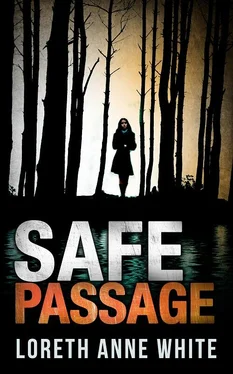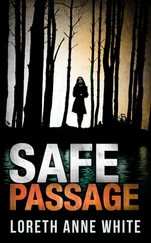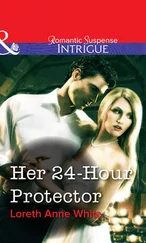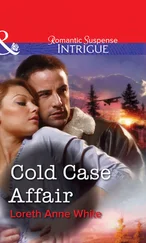“Let’s hope they can stand the cooler temperatures.”
“That little gene seems to have done the trick. The control group is still thriving.”
The phone on the wall rang. “Yeah,” said Skye, reaching for the receiver, “but the ultimate test will be in the field. Dr. Van Rijn,” she said crisply into the receiver.
“Marshall, here. You ready to meet?”
“I’ll be right up.”
She hung up, rolled her eyes heavenward. “God has spoken.”
Charly grinned. “Have fun…oh, I almost forgot, Jozsef was here earlier.”
Skye stopped dead in her tracks. “Jozsef?”
Again?
“Why?”
“Looking for you.”
Skye frowned. “He knew I was home.”
“He probably forgot. The guy’s excited. Give the poor man a break. Tomorrow he gets a wife.”
Skye turned, started to push the lab door open but stopped midway, her mind racing. “What time was he here?”
“Jozsef?”
“Yes. Jozsef. Who else?” She heard the snip in her voice. So did Charly, from the look on her face.
“I don’t know. He was already in the lab when I arrived. Security let him in like always.” Charly stood. “What’s eating you?”
Skye shoved the door fully open. “Nothing. Wedding nerves.” But that little niggle was back, biting, probing deeper into the dark depths of her subconscious. She forced it down. She had work to do. An agricultural epidemic to halt. She strode down the corridor to the elevator.
The director of Kepplar Biological Control Systems was waiting.
Marshall Kane stood at his office window, heavy brow crumpled down low over small dark eyes. Skye noticed the lines on the sides of his mouth were etched deeper than usual.
“Dr. Van Rijn, come in. Take a seat.”
Skye sat, noting the formal use of her title.
Marshall remained standing, a hulking silhouette in front of the gray morning light. “Thanks for coming. I know this is a busy time for you what with the wedding and all.”
Skye nodded. “What’s up?”
He rubbed his jaw. “Last year this was a purely Canadian problem. Now it’s a bloody international one. I got word last night that the whitefly epidemic has found its way into southern Washington greenhouses. And this morning, I’m told it’s been detected in Northern Oregon. Inside and outside the greenhouses. It’s like a goddamn army marching south. It’s like nothing I’ve seen.”
“It’s nothing any of us has seen, Marshall.”
“It’ll be hitting the U.S. produce basket before we know it. If California takes a hit, the whole damn nation will take a hit.” Marshall moved from the window, seated himself behind his massive glass desk. “Think a minute about the financial implications, Dr. Van Rijn. A Japanese-only embargo of California fruits and vegetables could cost more than 6,000 jobs and over $700 million in lost output. An international embargo of California fruits would cost the state maybe 35,000 jobs and more than $3.8 billion in revenues.”
Marshall leaned forward, elbows on his desk, hands spread flat out in front of him on the glass. “But a total quarantine of California fruits, in which shipments and sales within the United States are embargoed, would result in hundreds of thousands of jobs lost and up to $20 billion in lost revenues.”
“You’re forgetting the hit the Canadian greenhouse industry has already taken, sir. And with all due respect, we are not responsible for the spread of the whitefly to the U.S.”
“No. We are not.” He raised his hand, leaving a steamy imprint on the glass. “But just think about the implications for Kepplar if we are successful in halting the little bastards.” Marshall had a greedy gleam in his small dark eyes. Beetle eyes, thought Skye. He was like a fat hungry bug himself. He picked up his silver pen, punctuated the air as he spoke. “There’s a lot riding on your project, Dr. Van Rijn. The U.S. Department of Agriculture is watching us. Our first beetle shipment goes out to Agriculture Canada for mass dispersal in two weeks, right?”
“Correct. We’re on target.”
“Good, because the U.S.D.A. is waiting to see how effective we are. If they like what they see, there’s another big contract in the works for Kepplar. A U.S. contract. We’ll make headlines, Doctor.”
Skye nodded. She liked the money that came with success. It helped her buy freedom. But she shunned the publicity. That could cost her dearly. She shifted to the edge of her seat, leaned forward. “Marshall, I don’t need to tell you I’m still unhappy with the early target date. And I know I don’t need to warn you no project is without risk, including this one. Ideally, I’d like more field trials.”
“Nonsense. The contained trials had excellent results. We haven’t got time for more. The risks are minimal. I’ve read your report.”
“Any time an alien species is released into an ecosystem there’s a risk the new bugs could become pests themselves. Or worse, become a vector for another disease.”
“Dr. Van Rijn, you are a pessimist. This bug was bred in our labs. It’s clean. There’s minimal risk of transmitting new disease.”
“I’m no pessimist, Marshall. I’m a pragmatist. Yes, we bred the bug here. Yes, it’s clean. But we started with a bug imported from Asia—”
“It went through the requisite quarantine process.”
“There’s always risk when meddling with nature.”
Marshall rolled his silver pen tightly between his thumb and middle finger. “But you have a fair degree of confidence in this project?”
“I do.”
“And the first colonies will be ready in two weeks?”
“Yes. But as I said, I’d like more—”
“Good. Because the last thing our southern neighbor needs right now is this army of whitefly marching south from Canada and heading straight for their produce basket. They’re already scrambling with the damned cattle plague. Now this. It’s straining diplomatic relations and they’re looking for scapegoats.”
“I’ve seen the papers. The Americans figure we should have moved earlier to control the epidemic in our own backyard. But these things know no borders.”
“Well, neither will our predator bug so it better damn well work.” Marshall slapped the pen onto his blotter. “If it does, Kepplar is made. If not, we go under.” His beetle eyes bored into her. “This is make or break, Doctor.”
“I read you, Marshall.” Skye felt anger starting to bubble. She had no doubt it would be her who took the fall should the project fail. Not Marshall. Not Kepplar Biological Control Systems. Not Agriculture Canada. She’d be the one hung out to dry. Held out to the media as the pathetic scapegoat who failed to avert an economic crisis.
She stood. “Anything else?”
“No. Thank you, and, um, congratulations, with the wedding stuff and all.”
It took all of Skye’s control to walk quietly out of Marshall Kane’s office, to close the door gently. But once shut, she stormed down the corridor. No elevator for her. She needed to work out her adrenaline on the stairs.
For Marshall, it always came down to the bottom line—cold hard cash. Personal acclaim. For her, it was the satisfaction of making something work. For finding a way to kill a parasite. To stop a blight from spreading.
And this whitefly had certainly become a blight on North America’s agricultural map. Skye knew of about twelve hundred different species of whitefly, but this was not one of them. It was a new species. A voracious species that could withstand extreme temperatures. And as yet, no one knew where it had come from and no one had isolated a natural predator to counteract it. So she had set out to create one, adapting a tiny black Asian beetle and breeding it in her lab. Her work was so promising that last year the feds had started taking a keen interest. And early this spring, the Canadian department of agriculture had ordered a massive beetle shipment from Kepplar for large-scale release across the country.
Читать дальше












